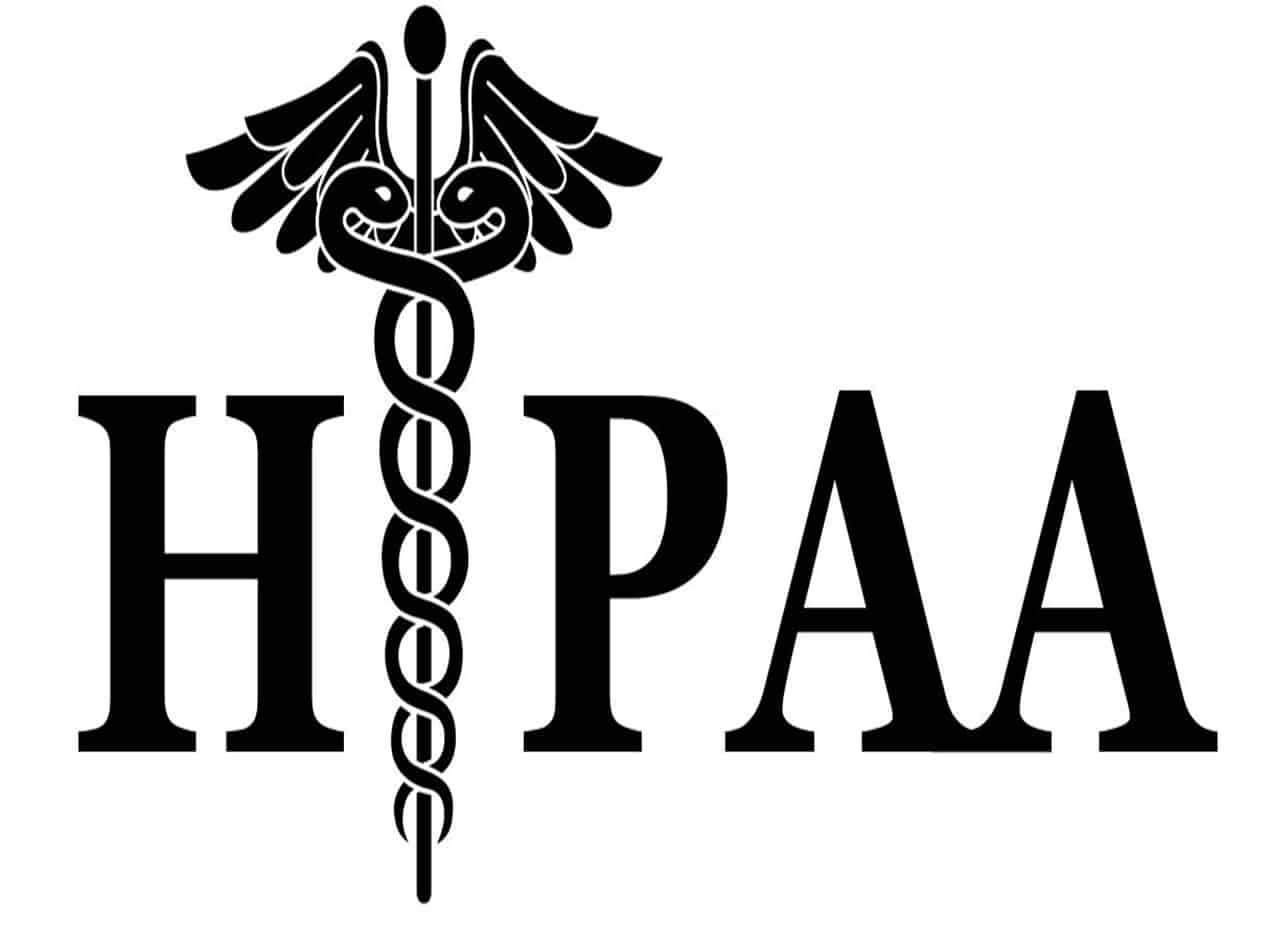
Just like all medical practitioners, it's important for doctors to understand HIPAA compliance when they communicate with or about patients. Doctors not only provide patient care but also safeguard protected health information (PHI). Because they deal with private information daily, they should be aware of how to safely communicate it.
SEE ALSO: PII and PHI best practices: How healthcare organizations should handle sensitive information
HIPAA compliant email is one of the best ways for patients and their healthcare providers to give and receive information clearly and securely. However, a HIPAA breach can be a major concern for all medical professionals. And it can cause undue stress on already overworked staff. HIPAA compliant secure email provides a top option for healthcare professionals, especially doctors.
What is HIPAA?
HIPAA (the Health Insurance Portability and Accountability Act of 1996) is U.S. legislation that protects the rights and privacy of patients. The U.S. Department of Health and Human Services Office for Civil Rights regulates and enforces the act. In total, HIPAA consists of five sections (or titles), with Title II being the most referenced.
Title II sets the policies and procedures for safeguarding PHI, whether in paper or electronic (ePHI) form, and includes:
- Privacy Rule (2003): covers the protection of PHI as well as compliance standards
- Security Rule (2005): sets required security standards to protect ePHI
- Enforcement Rule (2006): sets the rules for enforcing HIPAA and penalizing uncompliant organizations
- HITECH Act (2009): promotes the adoption and meaningful use of technology in healthcare
- Breach Notification Rule (2009): sets the procedures for reporting breaches
- Omnibus Final Rule (2013): incorporates HITECH further by improving privacy protections
These rules and amendments strengthen and further elucidate the building blocks necessary for patient privacy and security. And, of course, patient care.
LEARN ABOUT: Patient engagement and HIPAA compliance: What you need to know
What doctors need to know about HIPAA
Doctors are privy to PHI for numerous patients at any given time. And like all medical practitioners, doctors must follow HIPAA guidelines to protect a patient’s privacy.
SEE ALSO: Clinician’s guide to HIPAA privacy
Sometimes PHI might just be a name. But many times, PHI in front of a doctor could include diagnoses, financial information or insurance claims. And since doctors look after multiple records and patients when working in a small clinic or a large hospital, they may intentionally or unintentionally expose PHI during:
- A patient consultation
- An exchange of data with patients, colleagues and laboratories
- Referrals
- A follow-up with insurance
Furthermore, their office may want to share office updates, educational material or appointment reminders. In other words, it's crucial for doctors to understand the best way to communicate healthcare information.
HIPAA compliant email
HIPAA compliant email must meet the HIPAA requirements for the safe communication of PHI electronically. Sending and receiving an email with PHI is not a HIPAA violation if essential safeguards are correctly set.
RELATED: Why healthcare providers should use HIPAA compliant email
The Security Rule puts safeguards into three categories: administrative, physical and technical. For email, this could mean setting policies and procedures (administrative), workstation/computer controls (physical) and login controls (technical). The idea is to restrict access, monitor use and always ensure PHI integrity and message accountability.
One critical aspect of email security is encryption. HIPAA labels encryption as “addressable” and states that it must be used if it “is a reasonable and appropriate safeguard.” Unfortunately, though, there is no appropriate alternative to encryption. Therefore, healthcare organizations need to take sufficient steps to secure PHI at rest (in storage) and in motion (in transit).
What is an email HIPAA violation?
A HIPAA violation occurs when a healthcare professional does not properly safeguard PHI due to either negligence or an accident. A HIPAA violation can result in costly fines and lost business. HIPAA rules exist not only to stop such violations but also to hold uncompliant healthcare practitioners liable.
SEE ALSO: Preventing security breaches in healthcare
A HIPAA violation through email is common, which is why many physicians stay away from email. The most common way to send email is by not encrypting or properly safeguarding it, opening it up to a data breach. There can also be accidental breaches as well as disclosures that are purposeful and sometimes even harmful.
How could a doctor violate HIPAA with email?
There are several ways a doctor could violate HIPAA through email:
- Writing an email and including PHI without a patient's permission
- Accidentally sending a group email where recipients are visible to each other
- Jotting down an email, then walking away, leaving a computer open
- Sending an email intended for one patient to another
There are also intentional violations, such as curiosity-driven disclosures. This is when there is an interesting or celebrity case, and a doctor decides to share information outside of actual patient care.
LEARN MORE: Potential coronavirus-related HIPAA violations
Finally, there are breaches due to an organization not utilizing strong email security, which can lead to a cyberattack. In any of these incidences, using strong HIPAA compliant email would have helped.
Do all doctors need to use HIPAA compliant email?
Doctors always need to use a HIPAA compliant email solution when sending PHI. Especially given that healthcare is stressful and tiring as it is for medical practitioners. They need a secure solution that is easy to use and does not add to their workload.
LEARN ABOUT: Permitted use and disclosure of protected health information (PHI) under HIPAA
Moreover, studies show that patients want to communicate with doctors through email. Finding the most effective way to talk to patients has a positive effect on patient engagement and patient care.
6 HIPAA compliant email use best practices
- Have a fundamental understanding of HIPAA and PHI.
- Set up employee HIPAA awareness training and make sure everyone who works with you understands HIPAA compliant email.
- Develop an office policy for everyone to follow.
- Learn to exercise caution when accessing information from multiple devices, including mobile.
- Never share passwords or login credentials.
- Pause before sending an email and ask, “Does the recipient need the information to do their job? What is the minimum amount I can send to help a patient?”
READ MORE: Why cybersecurity education is key to protecting your medical practice
It is important to understand HIPAA and work with a HIPAA compliant email provider. By using a secure email provider like Paubox, your communications remain effective and protected.
Paubox HIPAA compliant email helps doctors care for patients
Paubox Email Suite takes healthcare emails seriously by providing doctors with an easy way to communicate securely with patients. Our HITRUST-CSF certified solution is effortless and lets doctors focus on caring for patients, all without adding to the stress of digital communication barriers and HIPAA compliance regulations.
No additional passwords or portals are necessary, and there is no need to change your existing platform.
RELATED: Top 7 things you didn’t know about Paubox Email Suite
Paubox Email Suite enables HIPAA compliant email by default and encrypts every outbound message automatically. And our Plus and Premium plans come equipped with innovative, proactive inbound tools like Zero Trust Email and ExecProtect. There is no reason to hesitate. Let Paubox do the heavy lifting when it comes to HIPAA compliance and emailing your patients so you can focus on patient care.
Subscribe to Paubox Weekly
Every Friday we'll bring you the most important news from Paubox. Our aim is to make you smarter, faster.



